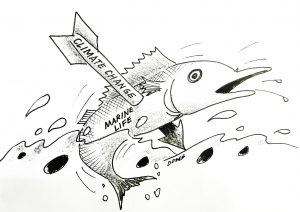The rising temperatures and weather patterns are becoming more erratic nowadays, affecting fishing communities around the world. Increased ocean acidification threatens the delicate balance of marine ecosystems, further jeopardizing fish stocks and the livelihood of fishermen. These detrimental effects underscore the urgent need for sustainable fishing practices and effective environmental policies to mitigate climate change and safeguard the fishing industry for future generations.
One of the most significant impacts of climate change on the fishing industry is the alteration of fish migration patterns and distribution. Rising water temperatures force many species to seek cooler habitats, often resulting in range shifts. Fishermen who were accustomed to specific fishing grounds find themselves travelling greater distances to catch once-abundant species or, in some instances, facing the complete disappearance of certain species from their local waters. This not only disrupts the fishing economy but also creates social and economic challenges for fishing communities, including unemployment and the loss of cultural traditions centered around fishing activities.
Another consequence of climate change for the fishing industry is the threat of ocean acidification. As greenhouse gases accumulate in the atmosphere, they dissolve into seawater, causing the pH levels to drop. This acidification poses serious dangers to various marine organisms, including shellfish and coral reefs, which provide essential habitats for many fish species. Weakening of these key components of marine ecosystems could lead to a collapse in fish populations, triggering a ripple effect throughout the fishing industry. Moreover, the socioeconomic implications of such a collapse would be devastating for fishing-dependent communities, leading to economic instability and food insecurity.
Addressing the challenges posed by climate change to the fishing industry necessitate proactive measures to reduce greenhouse gas emissions and promote sustainable fishing practices. Governments and regulatory bodies must collaborate with local communities to implement effective environmental policies that focus on lowering carbon emissions while protecting marine ecosystems. These policies could include better fishing quotas and restrictions, protecting critical habitats, and fostering the uptake of cleaner and more sustainable fishing technologies.
Urgent action is required to mitigate the effects of climate change, including the implementation of sustainable fishing practices and environmental policies that prioritize the preservation of marine ecosystems. Failure to address these challenges adequately will not only impact local economies but also undermine food security for countless communities that rely on the fishing industry.




